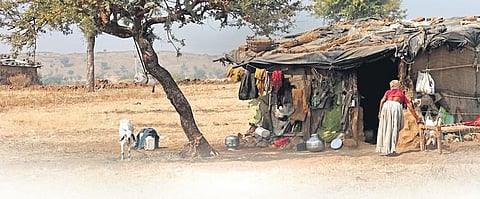

DUBAI: On the Day 1 of 28th Conference of the Parties to the United National Framework Convention on Climate Change (UNFCCC), the much-awaited Loss and Damage Fund was agreed to be operationalised by all the signatory countries and $420 million was pledged. It was hailed as a historic moment. But is this enough? While the UAE and Germany pledged $100 million each, the United States, which is the largest greenhouse gasses (GHG) emitter in the world, announced a paltry $17.5 million. Can COP28 under the UAE Presidency deliver justice and adequate finance to the most vulnerable countries is the biggest talking point as we enter the business end of the global climate summit.
While COP28 President Sultan Al Jaber claimed this fund will support billions of lives and livelihoods particularly vulnerable to climate change and that his presidency will work with parties to now deliver the highest ambition response to the Global Stocktake, a new report by the University of Delaware released almost at the same time the fund was established presented a grim picture. The report, "Loss and Damage Today: How Climate Change is impacting output and capital", shows climate change led to a GDP loss of about $1.5 trillion globally in 2022. The report is based on 58 economic models and employs machine learning to produce a "best-estimate" of the current GDP and capital wealth losses from climate change.
Who suffered most losses
As expected, the underdeveloped and developing regions, which lack sufficient resources and resilient mechanisms to counter climate change, suffered the most. Among the 13 UNFCCC negotiating groups, Southeast Asia's GDP eroded by 14.1% followed by Southern Africa 11.1% and least developed countries 8.3%. Low and middle-income countries face significant capital losses, posing challenges to their long-term economic resilience and growth. They have experienced $2.1 trillion in produced capital losses due to climate change, the report said. When GDP and capital losses are combined, the analysis finds that low and middle-income countries have experienced a total loss of $21 trillion since the Rio Convention was adopted in 1992. Climate change is also exacerbating existing global inequalities with many high income countries currently experiencing gains, including an average increase of 4.7% to the GDP of European countries.
All UNFCCC party groupings, except for the European Union, have experienced losses, with the maximum by G77 at $29 trillion. These losses are expected to be conservative estimates, since important impact channels and non-market losses are not included in the analysis.
James Rising, author of the report and assistant professor at the University of Delaware, said: "The world is trillions of dollars poorer because of climate change, and most of that burden has fallen on poor countries. I hope that this kind of information can clarify the challenges that many countries already face today, and the support they urgently need to address them. The last 10 years have seen a revolution in how we understand macroeconomic risks, and this report builds a synthesis of all of their insights.”
Impact on India
The total GDP loss to India in 2022 was 8% compared to a world without climate change. As of 2022, India has also suffered a cumulative decrease of 7.9% in capital wealth, mostly due to climate impacts to human-produced capital like infrastructure, while the effect on renewable capital is almost neutral, ie, the negative effect of warming (“direct” effect) is offset by the lesser GDP growth, which means less pressure on natural resources, which the report termed as "feedback" effect. This was the case with almost all the party groupings when it comes to impact on renewable energy.
Criticism on rich not contributing enough
Mohamed Adow, director, Power Shift Africa, termed the US pledge of $17.5 million to the Loss and Damage Fund as an "embarrassment" to President Joe Biden and John Kerry, who is the US Special Presidential Envoy for Climate. "The initial funding pledges are clearly inadequate and will be a drop in the ocean compared to the scale of the need they are to address. In particular, the amount announced by the US is embarrassing for President Biden and John Kerry,” Adow said.
The US and other rich countries wanted the fund to be hosted by the World Bank. This has been agreed, but on an interim basis, and only as long as it operates in a transparent and easy-to-access way, something the World Bank is not known for. If it proves unfit for the task, a separate entity would have to be set up to do the job. "The most pressing issue now is to get money flowing into the fund and to the people that need it. The pledged funds must not just be repackaged commitments. We need new money, in the form of grants, not loans, otherwise it will just pile more debt onto some of the poorest countries in the world, defeating the point of a fund designed to improve lives," Adow said.
Harjeet Singh, head of global political strategy at Climate Action Network International, said rich countries have attempted to dilute their financial obligations and resisted defining a clear finance mobilisation scale. “The absence of a defined replenishment cycle raises serious questions about the fund's long-term sustainability. Therefore, a robust system, particularly integrated with the Global Stocktake process and the new climate finance goal, is needed to ensure that COP28 results in a meaningful outcome.
"The responsibility now lies with affluent nations to meet their financial obligations in a manner proportionate to their role in the climate crisis, which has been primarily driven by decades of unrestrained fossil fuel consumption and a lack of adequate climate finance delivered to the Global South," he said.